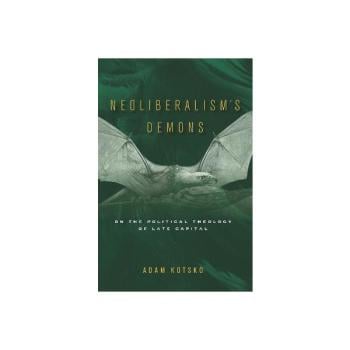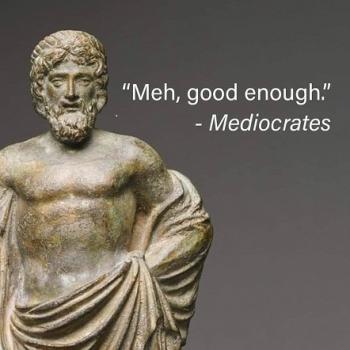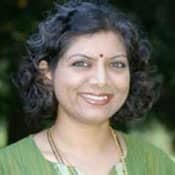In the few weeks since I went to the American Academy of Religion Annual Meeting, I have been considering the topic of conversion from the "other side"—not of Hindus converting to other religions, but of other religionists, particularly Christians, converting to Hinduism. Obviously, since I am so concerned about conversion of Hindus to Christianity, I should also have an opinion on the issues around Christians converting to Hinduism. My co-religionists in academia have differing viewpoints on this issue, for sure, as discussed last week in this column. As always, I wonder why religion divides instead of bringing people together. As my editor pointed out, "The issues are so complex and there seems an excess of hostility to go around."
Harvard University's Pluralism Project has many case studies that address the concept of pluralism—engaging and embracing the religious diversity amidst which we live. One case study lays out the trouble I faced during Troy's Annual National Day of Prayer event, an experience that sparked my "This I Believe" essay on pluralism and peace. Another one covers how a Baptist group in El Sobrante, CA, distributed fliers hoping to the save the Sikhs at a Peace Parade that the Sikh community had organized. When we discussed the different sides of the story at a monthly meeting of the Troy-area Interfaith Group, Convener Rev. Bob Cornwall raised a critical issue that gives rise to my wariness: is there fairness in sharing the message when there is an imbalance of power between the person sharing and the person receiving it?
While I am a Hindu and believe that there are different paths to the Truth, I don't follow Universalism—a theological doctrine that all human beings will eventually be saved. After all, the Hindu concept of moksha—the final of the four objectives of a human being—is not about being saved, but liberation: freedom from the cycle of rebirth. And unlike most Christian or Western traditions, most Hindus do not have a core practice of seeking converts, sharing a message, or saving souls. Even those who are willing to share Hindu philosophical and spiritual concepts with non-Hindus, do so without the zeal of those many call "rice Christians." I, like many of my fellow Hindus, find these purpose-driven, highly-financed campaigns disturbing. Share the gospel, if you must, but do so without strings attached; let it stand on its own merits.
Another major difference in the conversion of non-Hindus to Hinduism is the "voluntariness" of exposure; Hindu philosophy is discovered as part of one's seeking a path to the Truth, rather spontaneously and usually not through such active proselytization. In "The Good and Bad of Religion," Hindu-convert Ramdas Lamb says, "I left Christianity not because I saw the religion as bad and lacking values, but because I did not find the specific tools I needed to help me build the kind of life and being that I was seeking. I became a Hindu not because all Hindus are good and the religion is perfect, but because I found a set of tools and a belief system that works for me." Ramdas Lamb, like Jeffery Long, sought and found faith through Hinduism of his own volition; he was not approached by someone who went door to door, seeking to save others. The intrusion I feel when someone arrives on my doorstep with a Bible in hand and message of salvation is magnified if they go to share the message with a Hindu in another country, whose poverty and race create a more striking asymmetry of power.
Raman Khanna, a Hindu American Foundation Executive Council member like me, was also at the AAR Annual Meeting, and as we shared our experiences around the topic of conversion, he brought up something that several Christians have asked him: if Hindus think both Hinduism and Christianity are true, and Christians think only Christianity is true, isn't it better to become Christian "just to be sure"? And herein lies another critical difference between converting to Christianity and converting to Hinduism. The Hindu belief that there are multiple paths is what makes for a pluralistic worldview. But as a Hindu, one practices pluralism while following philosophical fundamentals that are also inclusive. Unlike exclusivist fundamentals—where you will be saved by following one specific path, with a "them/us" approach to God—the inclusivist approach does not divide, and allows one to seek and experience peace not only for oneself, but for the community at large.





